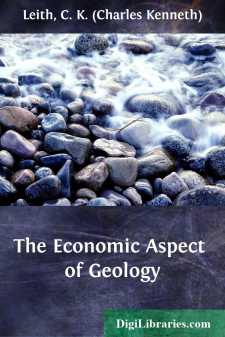Categories
- Antiques & Collectibles 13
- Architecture 36
- Art 48
- Bibles 22
- Biography & Autobiography 813
- Body, Mind & Spirit 142
- Business & Economics 28
- Children's Books 17
- Children's Fiction 14
- Computers 4
- Cooking 94
- Crafts & Hobbies 4
- Drama 346
- Education 46
- Family & Relationships 57
- Fiction 11829
- Games 19
- Gardening 17
- Health & Fitness 34
- History 1377
- House & Home 1
- Humor 147
- Juvenile Fiction 1873
- Juvenile Nonfiction 202
- Language Arts & Disciplines 88
- Law 16
- Literary Collections 686
- Literary Criticism 179
- Mathematics 13
- Medical 41
- Music 40
- Nature 179
- Non-Classifiable 1768
- Performing Arts 7
- Periodicals 1453
- Philosophy 64
- Photography 2
- Poetry 896
- Political Science 203
- Psychology 42
- Reference 154
- Religion 513
- Science 126
- Self-Help 84
- Social Science 81
- Sports & Recreation 34
- Study Aids 3
- Technology & Engineering 59
- Transportation 23
- Travel 463
- True Crime 29
The Economic Aspect of Geology
Categories:
Description:
Excerpt
CHAPTER I
SURVEY OF FIELD
In adapting ourselves to physical environment it has been necessary to learn something about the earth. Mainly within the last century has this knowledge been organized into the science of geology, and only within the last few decades have the complex and increasing demands of modern civilization required the applications of geology to practical uses, resulting in the development of the science generally known as economic geology. This science is not sharply marked off from the science of geology proper; almost any phase of geology may at some time or some place take on its economic aspect.
The usefulness of economic geology was first recognized in relation to mineral resources,—and particularly in relation to metallic resources, their discovery and development,—but the science has been found to have much wider practical application. The practice of the economic geologist in recent years has taken on many new phases.
The geologist is called upon to study the geologic features of mineral deposits, their occurrence, structure, and origin. The basic information thus acquired is useful in estimating reserves and life of mineral deposits. This leads naturally to considerations of valuation. Because valuation plays such a large part in any tax program, the geologist is being used by tax boards of the federal and state governments.
Both in the formulation of laws relating to mineral resources, and in the litigation growing out of the infraction of these laws, the economic geologist plays a part.
One cannot go very far with the study of mineral resources without consideration of the question of conservation. Geologists are called on not only for broad surveys of the mineral reserves, but for the formulation of general principles of conservation and their application to specific mines and minerals.
The geologist's familiarity with the distribution and nature of mineral resources has given him a part in coping with broad questions of international use of natural resources. War conditions made it necessary to use new sources of supply, new channels of distribution, and new methods of utilization. The economic geologist came into touch with questions of international trade, tariffs, and shipping.
But economic geology is not solely confined to mineral resources. In relation to engineering enterprises of the greatest variety—canals, aqueducts, tunnels, dams, building excavations, foundations, etc.—geology now figures largely, both in war and in peace.
The nature, amount, and distribution of underground water supplies are so involved with geologic considerations that a considerable number of geologists give up their time wholly to this phase of the subject.
It might seem from this list of activities that geology is spreading too far into the fields of engineering and commerce, but there are equally rapid extensions of other fields of knowledge toward geology. The organization of these intermediate fields is required both in the interest of science and in the interest of better adaptation of the race to its environment....


